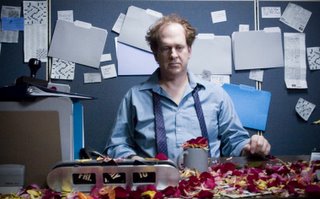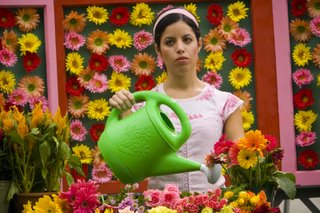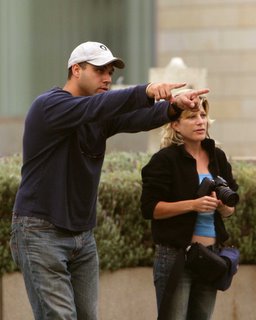Directing "Obsession"



Well, I finally made my cycle 1 film, "Obsession". We shot for four days in Beverly Hills, and it was an incredible learning experience. It was mentally exhausting like nothing I've done before, but man, what an amazing experience! Directing a movie with 20+ people between cast and crew, is nothing like the good old days of picking up the camera and shooting guerilla style. This is a different ball game. You're working on the set for twelve hours a day, then you're watching dailies and giving notes to your editor at the end of the night, and after that, you're thinking about tomorrow while lying in bed watching the moon slide westward. You sleep for four hours if you're really lucky, and you bust your ass the next day. I found that somehow, there is a perfectionist in me after all. I was obsessing over getting the right performance and the right camera pace for the moving shots.
There are a million things I want to write about, but I'll be brief and cover the big lessons for those interested in filmmaking.
1) Be prepared. Know the story inside out. Know the character changes and the arc inside out. Why? Because everyone will come and ask you questions that they want answers for. Because when you're filming, there's no room for second-guessing. The clock is ticking and you're trying to keep up with your schedule for the day. Because you have to be the leader of the team and if you don't know your shit, other people will start taking your movie in a direction you didn't intend. All your choices and decisions have to come from your preparation.
2) Dealing with conflict. On the first day of shooting, my cinematographer and I butted heads on every single shot. We argued about everything as if all the pre-planning I had done was ready to fly out the window. You have to be open for ideas all the time, but you have to have a clear vision and if something doesn't work with your vision, you have to stand by your convictions and communicate exactly what you want from each shot. At the end of the first day, my cinematographer saw that I was stubborn for a reason, and the choices I was making were turning out beautiful in the dailies (when you watch the day's work that night). In the end, it goes back to being prepared. If you're prepared, people will respect you.
3) Preparing. So what does being prepared really mean? For me, it's understanding the script in detail. It's about getting rid of anything that is unnecessary. It's about storyboarding the movie and previsualizing. Knowing the beats of each scene. What is really going on? What is the subtext here? When you're dealing with actors, you have to know what you want from them. You let them do their thing, but if it's not working, you have to be able to see that it's not working. You have to be able to communicate what you're looking for from those moments. For example, in one scene, the guy character goes up and asks the girl for flowers. He says "Flowers please." She says "Your girlfirend is a lucky girl, to be getting flowers so often." And his response is "No girlfriend!" Now this "No girlfriend' line can be interepreted in many different ways. But for me, the subtext of it is "Give me the damn flowers, bitch!" And that's how I explained it to the actor. As soon as I explained the subtext, he knew how to play the line, and for me, it's the funniest moment in the movie. You'll see what I mean soon.
4) Directing actors. So you can have all this elaborate production going on and everybody working like crazy putting in their 200%, but if you don't have a good performance, well, you don't have shit. Performance is the signle most important thing the camera is recording, no matter what. So when you say action, and you watch behind the monitor, you have to put yourself in the mental state of the audience watching. You have to see if this little moment fits the scene or not. You have to watch if the actor's blink takes the audience out of the moment. You have to listen to the tone of the voice. Are they over-acting anything? Is it really working? And when it works, you will see it and boy is it the most satisfying feeling in the world or what. I will write more later about directing performance.
5) Making choices. The nuances and details of all the elements will contribute to the success of your movie. All the details like camera angle, rhythm of blocking and camera motion, production design, sound, editing... the details are what elevates the movie from good to special. It's hard to make a good movie. It's even harder to make a special movie. I think I've finally made a special movie.
6) Keeping it fun. If you want everyone working with you to respect you, you have to remind yourself that making movies is actually a lot of fun. I don't know what in the world could be a more satisfying experience than making movie-magic. If you have fun and don't take yourself too seriously, then your cast and crew will have fun with you. You still bust your ass and fry your brain thinking about all the details, but you'll get more out of everyone if the environment is fun.
So having said all that, I will post "Obsession" on my web site in about a week once all the editing and post-production work has been completed.
I would also like to thank Laith for helping out on the set and taking some really great photos.
